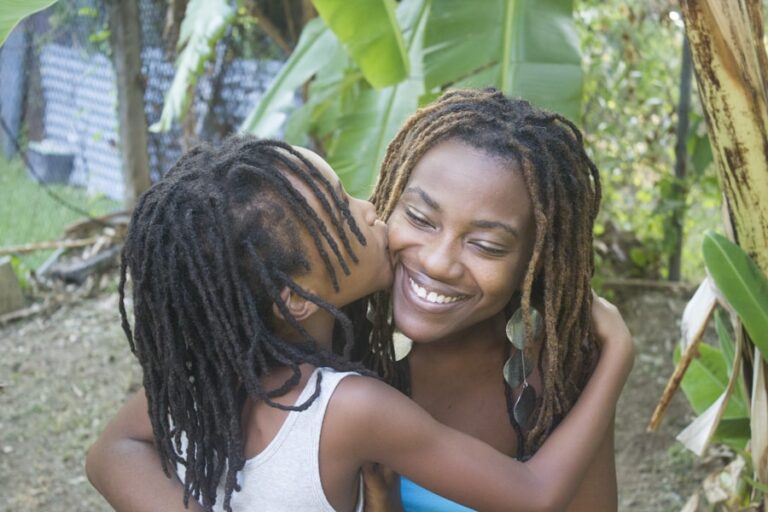When there is a loss in the immediate family, whether it be a relative, friend, or beloved pet, we often don’t know how to discuss the loss with our children. Sometimes we’ll even try to hide our feelings when we’re in their presence.
This is because many of us have never been taught how to discuss death. (Many of our parents practiced the same avoidance behavior.) This is especially the case when a pet dies; some parents will go as far as replacing the pet rather than openly discussing its passing. And when a grandparent dies, many parents will hide their own feelings, believing they are sparing or shielding their child from pain.
Verbalizing your own feelings and emotions allows your child to know that it is safe for them to do the same.
Sometimes as parents, we are insecure about expressing our truest feelings in front of our children. But our kids are people too, and they experience loss just as we do.
I have found that when we listen to our children and their experiences with loss, they can elevate our own perspectives as parents. And in listening, we discover that our children have the enlightened capacity to share profound insights that can help us all heal.
The following steps can help you open up a healthy dialogue about death with your child.
1. Be honest about how you’re feeling.
When you hide your own feelings, you may be sending the message to your children that it is not OK to talk about their emotions or to feel. Verbalizing your own feelings and emotions allows your child to know that it is safe for them to do the same.
2. Ask how they feel in the moment.
Ask your child how they feel about the loss of the family member, pet, or friend. What
they say may surprise you. Make sure to validate your child’s feelings and emotions; let them know how they feel and think is OK.
3. Be quiet and just listen.
Let your child describe their feelings or thoughts about their loved one’s passing. Be careful not to judge or impose your views about death on the child.
Invite your children to share their specific thoughts about death. Your child may have thoughts about life and death that you are unaware of until the moment arises. Be open to their perspectives on our collective existence. Let your child know that there is nothing wrong with what they think or believe about life and death. This way, you’re continuing to affirm that their feelings and thoughts are valid too.
4. Spend time in nature.
Reconnecting with nature in times of loss has its own unique healing powers. Take a walk in the park, along a river bank, or near a lake or the ocean. Take a picnic. When you’re in nature, disconnect from electronics and social media. Just be with yourself and your child in a natural environment.
While you’re spending time outside, discuss whatever comes to mind. Connecting with your child in this way may provide a path to inner healing.
A conscious dialogue about life and death allows everyone in the family to get closure. When it comes to grieving there is no right or wrong; grieving is a personal and introspective process. It takes different forms and often takes differing amounts of time to resolve. Whether it’s you, another adult, or a child, allow people to grieve to completion in their own way and at their own pace.

















